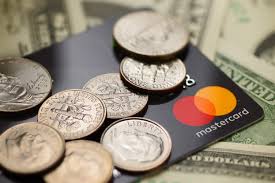 Before you start trading with cryptocurrencies in Kenya, it’s important to learn as much as you can about them. Before making any purchases, you should research Regulation, Exchanges, Taxes, and the like. These can all help you make the right decision. Once you have done all this, you can start trading with cryptocurrencies in Kenya.
Before you start trading with cryptocurrencies in Kenya, it’s important to learn as much as you can about them. Before making any purchases, you should research Regulation, Exchanges, Taxes, and the like. These can all help you make the right decision. Once you have done all this, you can start trading with cryptocurrencies in Kenya.
Investing in education before trading with cryptocurrencies in Kenya
Before engaging in cryptocurrency trading in Kenya, it’s worth investing in some education. Although Kenya is rapidly becoming a crypto hotbed, it is still relatively new and largely unregulated. This leaves many Kenyans vulnerable and at risk. It’s also important to make sure that you hold the private keys of your cryptocurrency.
While cryptocurrency isn’t regulated by African governments, their mindset is likely to change. Some Africans are attracted to cryptocurrency because they lack access to traditional banking services, especially in politically unstable countries. Also, cryptocurrency transactions eliminate many of the procedural bottlenecks that plague traditional banking.
While Kenya is still young in the crypto space, the region has huge potential to develop new industries and generate high-return investments. A recent report by the nonprofit Distributed Ledgers, Blockchain and Research Technologies (DLBRT) recommends educating yourself before engaging in cryptocurrency trading in Kenya. It also recommends getting a custodial service provider to handle your crypto holdings.
Regulation
Cryptocurrency is an emerging industry in different parts of the world, with millions of people realizing the potential of the digital currency. Many people in Kenya have been asking whether they can engage in cryptocurrency without fear of sanctions. Kenya has recently passed an amendment to the Income Tax Act that allows digital marketplaces to collect and remit taxes on cryptocurrency transactions. A prominent example of such a marketplace is Coinbase, which is regulated by the Kenya Revenue Authority.
The CMA is responsible for overseeing public offerings of securities in Kenya. This means that any company engaged in cryptocurrency trading must acquire a Kenyan license. The CMA defines securities as debt instruments, shares, right options on other securities, future options on assets, and asset-backed securities. Cryptocurrencies are not yet classified as securities by the CMA, but the agency has the broad discretion to classify them as such.
As cryptocurrency becomes more popular in Kenya, the CBK has a clear position on the issue. While the Kenyan government is not promoting cryptocurrency, the regulator does have legitimate concerns. For example, it has been suggested that cryptocurrencies could be used for illegal activities, including money laundering and terrorism financing. In addition, these digital assets allow millions of dollars to be moved without a trace.
Exchanges
In Kenya, the interest in cryptocurrency trading has exploded, with many Kenyans now believing that the future lies in digital currency. Kenya’s Silicon Savannah is an example of this growing interest. In fact, cryptocurrencies are now considered the future of value exchange, according to experts. However, it is important to be cautious when deciding on which exchanges to use in Kenya.
The CBK has recently issued a public warning on cryptocurrency trading. It highlighted the lack of regulation in Kenya and the potential risks. It hasn’t, however, ruled out the practice of Kenyans trading cryptocurrencies. In fact, the Central Bank of Kenya estimates that there is over $1.5 billion worth of Bitcoin in the country, which is equivalent to 2.3% of the country’s GDP. However, trading large amounts of cryptocurrencies can be risky and difficult, and traders may face suspicion from local regulators.
Some of the most popular exchanges in Kenya include Changelly, which allows users to convert between cryptocurrencies. Its user interface is simple and easy to use, making it an ideal option for newcomers. In addition, it doesn’t require users to sign up for an account to make purchases or sell cryptocurrencies. Another popular exchange in Kenya is Luno, which lets users purchase and store Bitcoin.
Taxes
The Kenya Revenue Authority (KRA) is considering taxes on trading with cryptocurrencies as a new revenue source. The country’s Finance Act, which was revamped in 2020, focuses on the digital services market. As a result, the new tax regime will also apply to cryptocurrency payments and e-market transactions. The new tax is a timely response to the rapid growth of digital activities in the country. However, it could also weigh heavily on struggling start-ups and stifle the growth of the local digital economy.
To avoid this, investors should determine when to remit their gains. They should also remit their taxes to KRA on time to avoid incurring late payment penalties and interest. If they have questions, they should contact the Kenya Revenue Authority. Its experts will respond as soon as possible.
The law does not specifically mention cryptocurrency payment declarations, but it does outline the rules that apply to them. The KRA will be provided with details of bank account transactions, as well as any foreign payments made. Moreover, KRA will have access to all data, including cryptocurrency transaction data.
